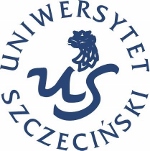Photodynamic therapy is a relatively new method used in malign tumour detection and treatment. The evaluation of the tumour response to this treatment can be made by optical techniques. In the paper below three optical techniques for tumour detection are presented: steady-state, time-resolved and frequency domain. In the steady- state measurements the light irradiation and detection can be either continuous or pulsed but the length of the pulse is long compared to the propagation time of the photons. The reflected light will consist of two parts: the spectral reflection and the diffuse reflectance, but the only one discussed here is the diffuse reflectance and there are two possible entities that can be measured: the total diffuse reflectance or the local diffuse reflectance. Another technique is the time-resolved one, where the transmitted or diffusely-reflected light from a femto- or picoseconds laser pulse is recorded as a function of time and a mathematical model is used to assess the optical properties. In the frequency-domain technique the optical properties are determined from the measurements of phase shift and demodulation of the detected light. These optical methods are non-invasive and nontoxic and present much interest among scientists and physicians as alternative technique for diagnosis and monitoring of cancer treatment.
Read morephotodynamic therapy, cancer, optical techniques, steady-state technique, time-resolved technique, frequency domain technique














